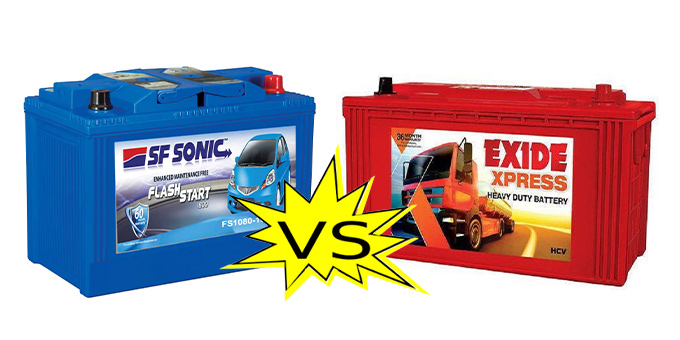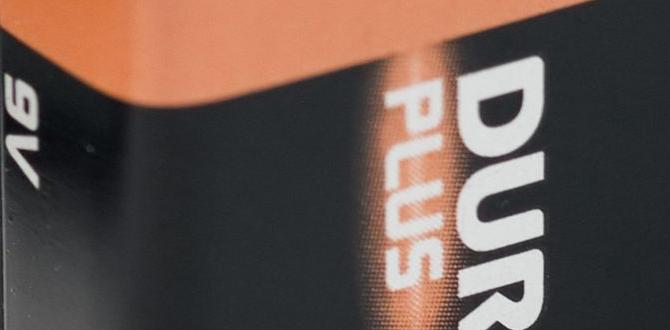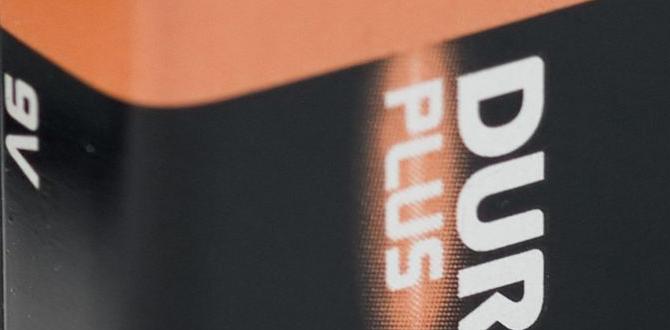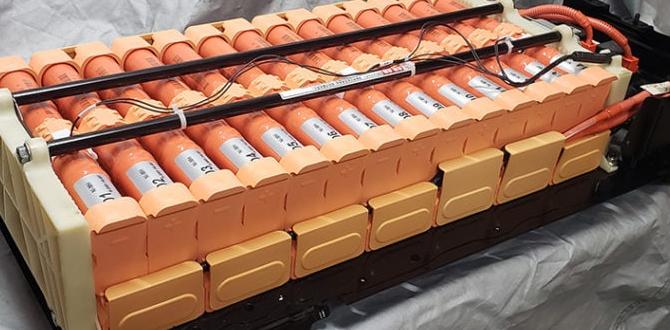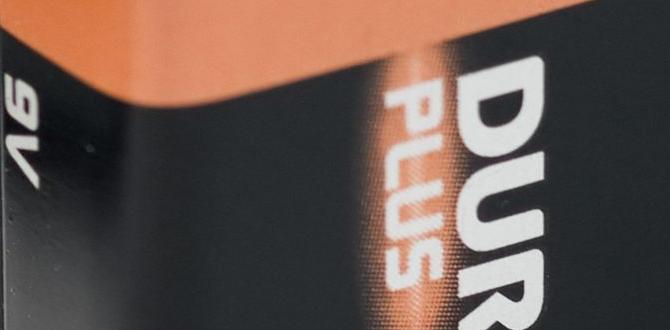Have you ever wondered how to keep your lithium-ion batteries safe? Many of us use these batteries every day. They power our phones, laptops, and even electric cars. But storing them safely is just as important as using them.
Did you know that poor storage can shorten their life? It can even make them dangerous. Imagine finding your favorite gadget no longer works because its battery was stored wrong. Yikes!
The best way to store lithium-ion batteries is not a mystery. It’s about knowing the right temperature, keeping them clean, and storing them when they’re at a good charge level. With a few simple tips, you can keep your batteries healthy and working well.
This article will explore the best way to store lithium-ion batteries. We’ll go over easy steps to protect your devices and battery life. Let’s dive in and learn how to care for these little powerhouses!
Best Way To Store Lithium Ion Batteries Safely And Effectively
Best Way to Store Lithium Ion Batteries
Proper storage of lithium ion batteries can help extend their lifespan. Keeping them cool and dry is essential. Did you know that storing them at around 40% charge is ideal? It helps reduce stress on the battery. Avoid temperatures above 85°F, as heat can damage the battery. Use a container that keeps them safe from moisture and physical damage. Following these tips ensures your batteries stay powerful and ready when you need them most!Factors Affecting Battery Storage
Temperature impact on battery life. Effects of humidity and environmental conditions.Many things can affect how well your lithium-ion batteries are stored. First, temperature plays a huge role. Batteries love mild conditions. Too hot or too cold can make their life shorter. Think of them like Goldilocks; they want everything *just right*!
Now, let’s talk about humidity. If it’s too damp, batteries might not be happy campers. They can rust and be cranky. Use a dehumidifier if you’re in a wet place. Environmental conditions matter too, like dust or dirt. Keeping your batteries in a clean space helps them stay fit and happy!
| Factor | Effect on Battery |
|---|---|
| Temperature | High heat shortens life |
| Humidity | Dampness can cause rust |
| Environment | Clean spaces keep batteries healthy |
Optimal Storage Conditions
Recommended temperature range for storage. Ideal humidity levels and their importance.For storing lithium-ion batteries, keep them at the right temperature. The best range is between 32°F to 68°F. Too hot or too cold can harm the battery. Humidity also matters. Aim for a dry place with humidity levels below 60%. High humidity can cause corrosion. Protecting your batteries helps them last longer.
What are the recommended storage conditions for lithium-ion batteries?
Store lithium-ion batteries in a cool, dry place to keep them safe and working longer.
Key Tips:
- Temperature: 32°F to 68°F
- Humidity: Below 60%
Preparation for Storage
Steps to take before storing the batteries. Importance of charge level before storage.Before tucking away your lithium-ion batteries, there are a few steps that can prevent headaches later. First, charge your batteries to about 40%. Too full, and they could leak; too empty, and they may die for good. Think of it like putting your phone in a cozy sleep mode—just the right amount of juice. Also, wipe them clean. Dusty batteries are sad batteries! Storing them in a cool, dry place is key. Here’s a quick table for reference:
| Step | Description |
|---|---|
| Charge Level | 40% is ideal before storage. |
| Clean | Wipe off any dirt or dust. |
| Storage Environment | Keep batteries cool and dry. |
Following these simple tips helps keep your batteries healthy and ready for action the next time you need them! Remember, a happy battery equals a happy you!
Long-Term Storage Strategies
Best practices for longterm storage. Recommended storage locations and containers.To keep lithium-ion batteries safe over time, follow these simple tips. First, store the batteries in a cool, dry place. Avoid areas that are too hot or too cold. Use a sturdy container to protect them from damage. Additionally, check their charge level. It’s best to keep them partially charged, around 40% to 60%. This helps maintain their health.
- Cool and dry locations are best.
- Use a padded container for safety.
- Store away from direct sunlight.
Where should lithium-ion batteries be stored?
Store lithium-ion batteries in a cool, dry, and safe area. Avoid heat sources and moisture. Keep them out of sunlight to ensure they last longer.
Monitoring and Maintenance During Storage
Importance of regular checks on battery condition. Signs of degradation and how to address them.To keep lithium-ion batteries healthy, checking their condition regularly is very important. You should watch for signs of wear, like swelling or leaking. These can mean the battery is getting old and might stop working. If you see these signs, it’s best to stop using the battery right away. Regular checks can help prevent problems and keep your batteries safe.
How often should you check battery condition?
Battery conditions should be checked every 1-2 months. This helps catch any issues early.
Signs to look out for:
- Swelling or bulging
- Leakage of liquid
- Decreased charging time
Safety Precautions When Storing Batteries
Guidelines for safe storage to prevent accidents. How to safely dispose of damaged or old batteries.Keeping batteries safe is very important. Follow these tips to store them well and avoid accidents:
- Always keep batteries in a cool, dry place.
- Avoid exposing them to extreme temperatures.
- Do not mix different types of batteries together.
- Store batteries in their original packaging, if possible.
If a battery is damaged or old, dispose of it safely:
- Find a local recycling center for batteries.
- Never throw them in the trash.
- Check for special disposal events in your community.
How should I store lithium-ion batteries?
To store lithium-ion batteries, keep them at around 50% charge in a cool area. This helps them last longer.
Frequently Asked Questions
Common queries regarding battery storage. Myths and misconceptions about lithiumion battery care.Many people wonder how to keep their lithium-ion batteries happy. Common questions often ask if storing them in the fridge is a good idea. Spoiler alert: it’s not! Batteries prefer a cool, dry place away from heat. Myths include the belief that letting them drain completely is fine. Nope! Always charge them before they hit rock bottom. Here’s a fun table to clear up some confusion:
| Myth | Truth |
|---|---|
| Batteries should be stored in the fridge. | Cool and dry is best, but no fridge! |
| Draining batteries helps them last longer. | Charge them regularly, friends! |
Remember, keeping your batteries in top shape is easier than finding your missing socks! Keep these tips in mind for long-lasting power.
Conclusion
In summary, the best way to store lithium-ion batteries is to keep them cool and at about 50% charge. Avoid extreme temperatures and moisture. Store them in a dry place, away from direct sunlight. Check them regularly and recharge if needed. For more information, you can read guides or watch videos on battery care to help you keep your devices safe and longer-lasting!FAQs
What Is The Ideal Temperature Range For Storing Lithium-Ion Batteries To Ensure Their Longevity And Performance?The best temperature for storing lithium-ion batteries is between 20 to 25 degrees Celsius (68 to 77 degrees Fahrenheit). This helps the batteries last longer. If it’s too hot or too cold, it can hurt the battery. So, keep them in a cool, dry place to keep them working well!
How Should Lithium-Ion Batteries Be Charged Before Long-Term Storage?Before storing lithium-ion batteries for a long time, you should charge them to about 50%. Don’t fully charge or completely empty them. Check the batteries every few months. If they lose charge, recharge them back to 50%. This helps keep them in good shape.
What Are The Best Practices For Checking The Health Of Lithium-Ion Batteries Prior To Storage?To check the health of lithium-ion batteries before storing them, first, look for any signs of damage, like swelling or leaks. Next, make sure the battery is charged between 40% and 60%. This helps keep it healthy while it’s not being used. Finally, store the battery in a cool, dry place away from heat and direct sunlight. This way, your battery will be ready when you need it again!
Should Lithium-Ion Batteries Be Stored In Specific Types Of Containers Or Packaging Materials?Yes, lithium-ion batteries should be stored in special containers. We can use plastic or hard cases that protect them. These containers keep the batteries safe from getting damaged or short-circuited. Always make sure the batteries are kept away from heat or water. This way, they stay in good shape and last longer.
How Often Should Stored Lithium-Ion Batteries Be Recharged Or Maintained To Prevent Degradation?You should recharge your lithium-ion batteries every three months if you’re not using them. This helps keep them healthy. Make sure to store them in a cool place too. If they ever look puffy or damaged, it’s best to stop using them.
{“@context”:”https://schema.org”,”@type”: “FAQPage”,”mainEntity”:[{“@type”: “Question”,”name”: “What Is The Ideal Temperature Range For Storing Lithium-Ion Batteries To Ensure Their Longevity And Performance? “,”acceptedAnswer”: {“@type”: “Answer”,”text”: “The best temperature for storing lithium-ion batteries is between 20 to 25 degrees Celsius (68 to 77 degrees Fahrenheit). This helps the batteries last longer. If it’s too hot or too cold, it can hurt the battery. So, keep them in a cool, dry place to keep them working well!”}},{“@type”: “Question”,”name”: “How Should Lithium-Ion Batteries Be Charged Before Long-Term Storage? “,”acceptedAnswer”: {“@type”: “Answer”,”text”: “Before storing lithium-ion batteries for a long time, you should charge them to about 50%. Don’t fully charge or completely empty them. Check the batteries every few months. If they lose charge, recharge them back to 50%. This helps keep them in good shape.”}},{“@type”: “Question”,”name”: “What Are The Best Practices For Checking The Health Of Lithium-Ion Batteries Prior To Storage? “,”acceptedAnswer”: {“@type”: “Answer”,”text”: “To check the health of lithium-ion batteries before storing them, first, look for any signs of damage, like swelling or leaks. Next, make sure the battery is charged between 40% and 60%. This helps keep it healthy while it’s not being used. Finally, store the battery in a cool, dry place away from heat and direct sunlight. This way, your battery will be ready when you need it again!”}},{“@type”: “Question”,”name”: “Should Lithium-Ion Batteries Be Stored In Specific Types Of Containers Or Packaging Materials? “,”acceptedAnswer”: {“@type”: “Answer”,”text”: “Yes, lithium-ion batteries should be stored in special containers. We can use plastic or hard cases that protect them. These containers keep the batteries safe from getting damaged or short-circuited. Always make sure the batteries are kept away from heat or water. This way, they stay in good shape and last longer.”}},{“@type”: “Question”,”name”: “How Often Should Stored Lithium-Ion Batteries Be Recharged Or Maintained To Prevent Degradation? “,”acceptedAnswer”: {“@type”: “Answer”,”text”: “You should recharge your lithium-ion batteries every three months if you’re not using them. This helps keep them healthy. Make sure to store them in a cool place too. If they ever look puffy or damaged, it’s best to stop using them.”}}]}


